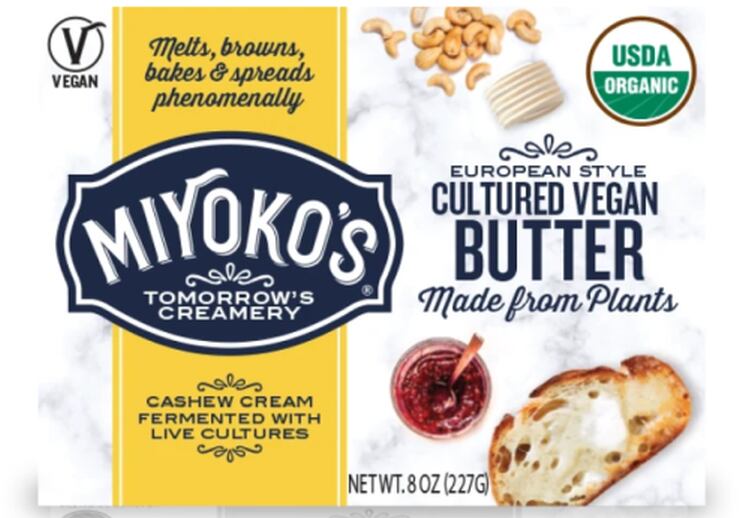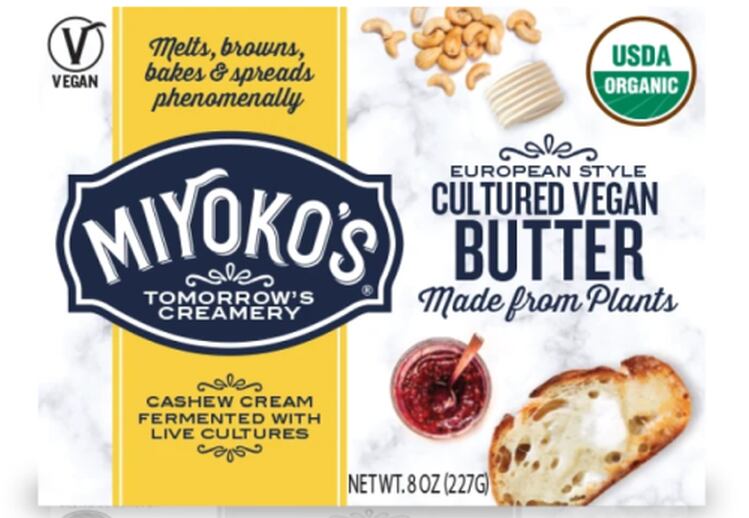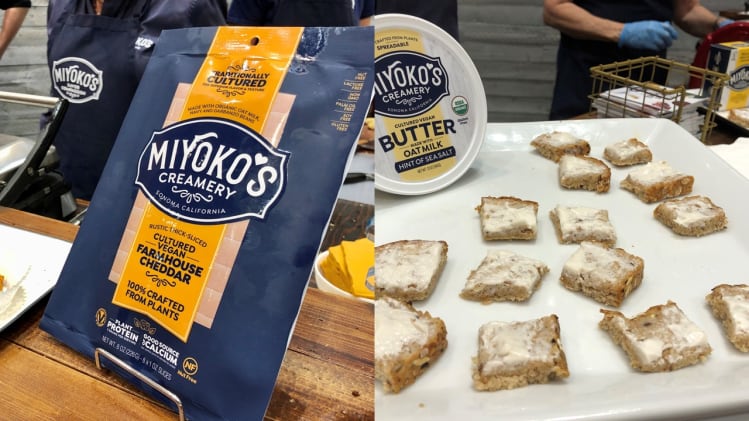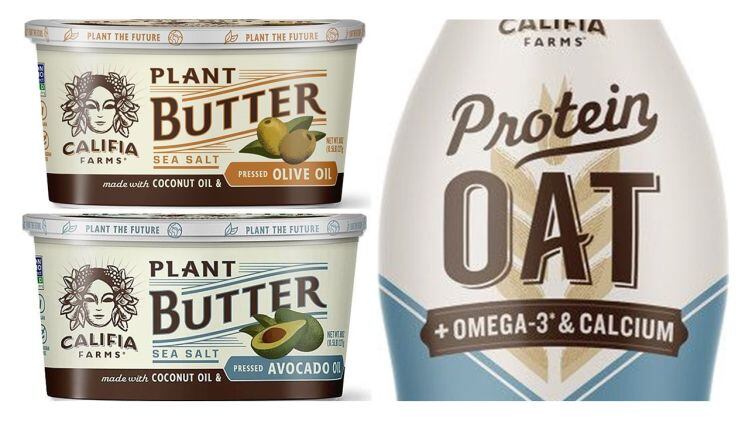The dispute began late last year after Miyoko's was told by the Department of Food & Agriculture to drop the terms ‘butter,' ‘lactose-free,’ hormone-free’ and ‘cruelty-free,’ from its plant-based butter product (which is made from coconut oil, sunflower oil and cashew nuts) because "it is not a dairy product."
Miyoko’s - which said it was given no choice but to develop custom packaging for California (“creating a logistical nightmare”), change marketing and packaging materials nationwide at huge expense, or risk prosecution - filed a lawsuit* in February 2020 in a bid to prevent the State from enforcing its demands, which Miyoko's argued violated its First Amendment rights.
The attorney general of California promptly fired back, arguing that Miyoko’s filing was “premature,” that the case was "not ripe," and that the two could have "reached a negotiated solution."
In reality, claimed Miyoko’s, the State had already acknowledged that its next steps would be to “impound the product,” and that a negotiated solution would mean changing its labels, something it was not willing to do, given that it disagreed with the State's position.
Judge: 'Miyoko’s has met its burden of establishing a credible threat of prosecution'
In an order filed on Thursday (June 25), US district judge for the Northern District of California Richard Seeborg agreed with Miyoko's, concluding: "In sum, although a close case, Miyoko’s has met its burden of establishing a credible threat of prosecution...
"Moreover, in the First Amendment context, a showing of even a modest risk of enforcement should weigh in favor of a finding of justiciability. The Ninth Circuit has emphasized that, given the potential for 'chilled' speech,' when the threatened enforcement effort implicates First Amendment rights, the inquiry tilts dramatically toward a finding of standing.”
"Because Miyoko’s satisfies the standing and ripeness requirements, the State’s motion to dismiss for lack of subject matter jurisdiction is denied."
Miyoko Schinner told FoodNavigator-USA: "Next we proceed with our Motion for Preliminary Injunction, which we filed [in late May, which would permit the company to maintain its labeling as-is while the case proceeds]. We'll have to wait for that hearing to be set, likely two to three months from now."
ALDF: Miyoko's is accurately describing its products
Stephen Wells, executive director at the Animal Legal Defense Fund, which is backing Miyoko's, said: “It’s not the government’s role to censor a business accurately describing their animal-friendly products to their customers, especially when it clearly impedes their first amendment rights."
PBFA: 'Now Miyoko’s will get its day in court to ensure the state stops this needless meddling'
Michele Simon, executive director of the Plant Based Foods Association, added: “This decision is an important step towards victory for both Miyoko’s and the entire plant-based foods industry. The state of California has been unfairly attacking our members for years, all at the behest of the dairy lobby. Now Miyoko’s will get its day in court to ensure the state stops this needless meddling."
The California Department of Food and Agriculture did not immediately respond to requests for comment on the case.

Dairy standards of identity
So where does the law stand on 'plant-based butter'?
According to FDA standards of identity, butter must contain 80% milkfat, while margarine must contain 80% fat but it doesn’t have to come from milkfat. Vegetable oil ‘spreads,’ meanwhile, typically contain up to 40% water.
However, this case is not necessarily a slam dunk for the State of California just because Miyoko’s products don’t contain 80% milkfat.
Courts have not yet ruled on a challenge to ‘plant-based butter,’** and consumer class actions taking issue with terms such as ‘almond milk’ and ‘soy milk’ have not made much headway, with judges arguing that the federal standard of identity for ‘milk’ (which limits it to lacteal secretions from cows) does not preclude a company from using terms that feature the word ‘milk’ (eg. 'soy milk') as long as they use qualifiers such as ‘plant-based’ or ‘dairy-free’ and consumers are not confused.
In this case, Miyoko’s packaging and marketing (“vegan butter”… “made from plants”) make it abundantly clear that its products are not made from cow’s milk, said the firm, noting that its fans are paying a premium for its products precisely because they are not made from cow’s milk.
Plant-based butter… margarine by any other name?
While some commentators say brands such as Miyoko’s, Califia Farms and Kite Hill are using the term plant-based ‘butter’ in order to present what is basically margarine as something new and exciting, Miyoko’s says the State of California is violating its rights to free speech by “prohibiting the company from making truthful statements about the identity, quality, and characteristics of vegan and plant-based products.”
The brands also argue that the inclusion of premium ingredients such as coconuts, cashews, almondmilk and tigernuts in these next-gen products differentiates them from traditional margarine brands that use cheaper vegetable oils such as soy, palm, and canola.
*The Case is Miyoko’s Kitchen Inc vs Karen Ross (Secretary of the California Department of Food and Agriculture) and Stephen Beam (Branch Chief of the Milk and Dairy Food Safety Branch of the California Department of Food and Agriculture). Case # 3:20-cv-00893 filed 02/06/20 in In the US District Court for the Northern District Of California.




